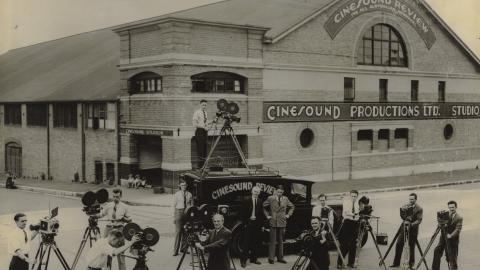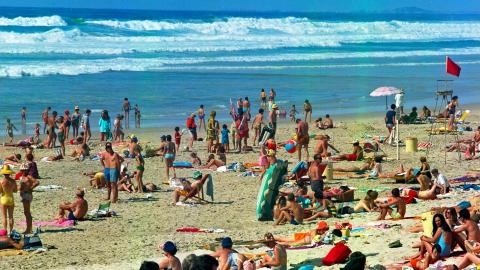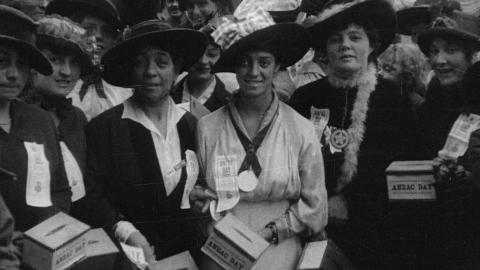
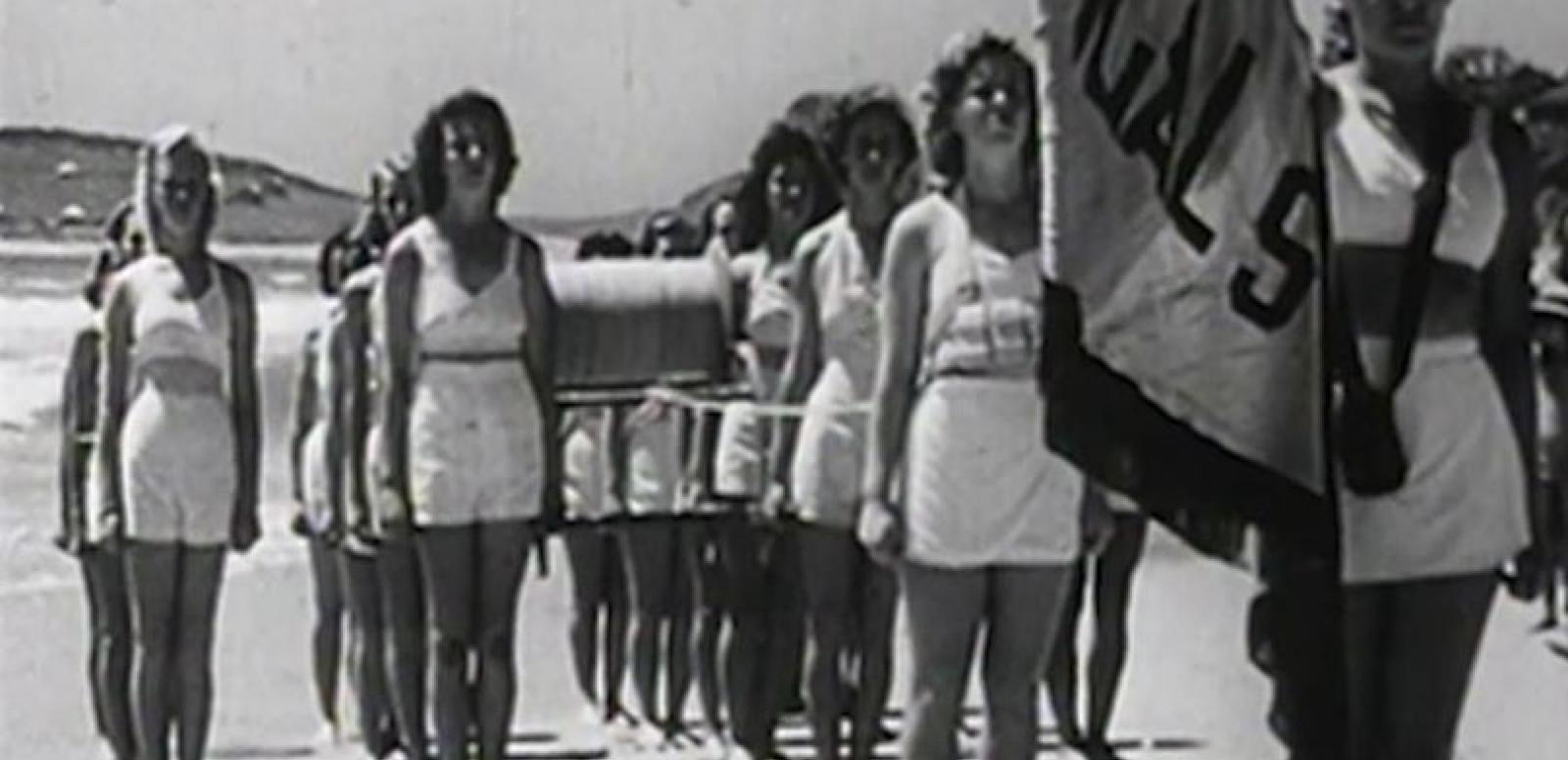
Australia's first female lifesavers
The Terrigal Surf Life Saving Club in New South Wales is celebrating its centenary by honouring a group of women who undertook lifesaving duties during the Second World War.
Muriel James (nee Ogden), 92, is one of the former lifesavers that will be attending the medal ceremony on 22 November. Born in 1925, Muriel volunteered at the Surf Life Saving Club during her late teens. She believes it will be surreal to be formally acknowledged for her services after so many years.
'It’s going to feel strange because it’s been so long', she says. We were happy that we’d done it and now we’re very happy to be recognised.'
It’s recognition that is long overdue.
The Surf Life Saving Association of Australia did not formally accept active female members until 1980. But back in 1942, the ladies of Terrigal Surf Life Saving Club felt they had no choice but to step up when 73 of the club’s 76 male lifesavers were away during the war.
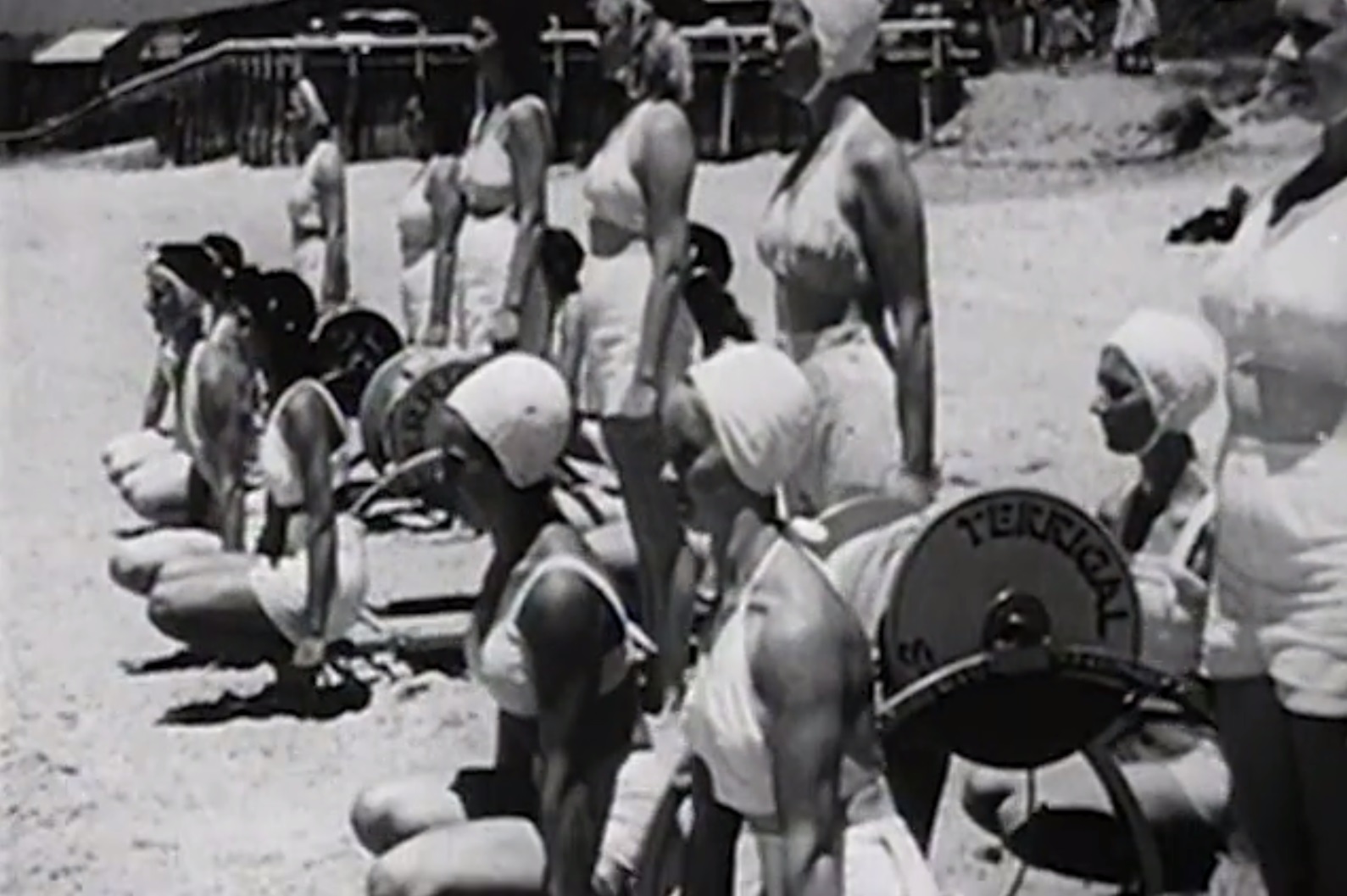
There were some that thought women couldn't do these things. But we could do it and we proved it.
'War brought it out', Muriel recalls. 'We wanted to do something. We all loved surfing; we were always going out there on the weekend, having beach days.'
Seventeen-year-old Muriel had wanted to enlist in the armed services herself, but when her father would not give her permission, patrolling the beach was another way to help out.
Training to become a lifesaver involved practising R&R (rescue and resuscitation). The young women took turns being the patient and the rescuer, so that everyone could gain as much experience as possible.
The female lifesavers attracted attention both locally and nationally. In 1944, a Fox Movietone newsreel called Brother, have you been saved? was played in cinemas. Muriel appears on screen at 0:23: she is the girl in the middle, second from the front. To her left, placed first in the foreground, is her lifelong best friend Nola Lawn, who passed away earlier this year.
'Brother, Have You Been Saved?' Movietone News A0553: No. 02.Courtesy Cinesound Movietone Productions. NFSA title: 75615
The newsreel voice-over features jokes and language that would certainly create a social media uproar today - the girls are referred to as 'peaches of the beaches' and 'luscious lifesavers', and the camera does not hesitate to focus on the women’s legs. When asked if this was the kind of attention the lifesavers received on the beach, Muriel is firm in saying this was not the case.
'My experience was that people on the beach were supportive', she says. But unfortunately, there were still naysayers. 'There were some that thought women couldn’t do these things', Muriel admits in her trademark no-nonsense style. 'But we could do it and we proved it.'
On one memorable occasion, the patrol team spotted a shark in the water and were quick to react. 'It seemed to be coming in on a wave', remembers Muriel. 'We knew it was there and did something about it.'
Although Muriel’s mother Jean knew what her daughter was up to, she avoided mentioning this to her protective husband. And so Muriel’s father Jim simply thought she was at the beach for recreational purposes. A taxi driver by trade, he decided to drop by one day and pay her a visit. When he saw her in the water, he assumed the worst and rushed out to rescue her – forgetting that he himself could not swim. In the end, he was the one that had to be helped back to shore!
The female lifesavers patrolled Terrigal beach from 1942 to 1945. After the war, Muriel took a weekend trip to Katoomba, where she met a handsome young man from the air force named Max James who became her husband. These days, Muriel enjoys spending time with her sons and their families – which now include eleven grandchildren and four great-grandchildren. 'I’d love to see everyone again', says Muriel of the upcoming Bronze Medallion ceremony. 'But it’s not possible.'
She is looking forward to returning to the beach though. 'It was a beautiful place', she says. 'We always appreciated the wonderful surroundings and loved the satisfaction of doing good work.'
The National Film and Sound Archive of Australia acknowledges Australia’s Aboriginal and Torres Strait Islander peoples as the Traditional Custodians of the land on which we work and live and gives respect to their Elders both past and present.
